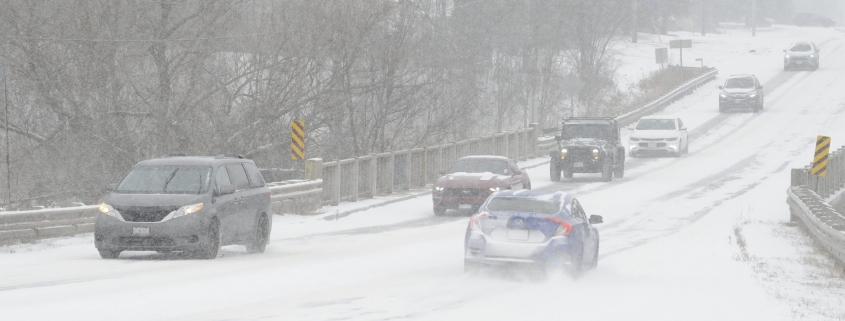Here’s What’s Happening To Your Hunkered-Down Car During the Long COVID Winter
Cars aren’t that different from us humans in some ways.
For instance, cars are best to be up and moving about on a regular basis. We know that being a couch potato is bad for us, and remaining stationary for extended periods can spell disaster for the health of your car, too.
Below, we’ll outline what’s happening to your car while it sits unused on the street, or in your driveway or garage. With a look at how long periods of non-use can affect the health of your vehicle, we’ll also outline some ways to fend off possible problems, before they start.
If you’re a new car shopper, remember that these same things may be affecting brand new vehicles sitting for extended periods on dealer lots, too. So-called ‘lot-rot’ has been linked to an increase in complaints from new car owners in the months following their purchase.
Here’s the sticky.
The Battery
Your car’s battery suffers the most at times like these. Cold temperatures and long periods without any recharging from the engine can take months or years off of its lifespan. Electronic components that run in the background while your car is parked pick away at its charge even further.
If you had to boost your car at least once last winter and haven’t changed the battery yet, there’s a good chance it won’t survive this winter, if you’re not driving regularly.
Fend off battery trouble by using a trickle charger at all times while your vehicle is parked for more than a few days. You can grab one for fewer than fifty bucks at Home Hardware. Hooking it up takes a few moments, and will extend the lifespan and reliability of your battery.
If your battery was a bit shady last winter and you haven’t driven your car in a month now, you may want to double-check that it still starts your engine.
Rodents
Your car is full of delicious things that rodents love to eat, and build nests from, and urinate on. It’s also warm and sheltered.
Rodents like mice, rats, and squirrels come for the cheerios and fries your kids scatter around the back seat and stay for the delicious stuffing inside of their child seat or a nearby piece of footwear, which they’ll use as nesting material.
Rodents can scare an unexpecting driver, spread disease, and damage your vehicle. Make your vehicle less attractive to nesting rodents by cleaning and vacuuming it thoroughly, and keeping the area where your vehicle is parked clean and free of food sources like garbage, bird feeders, and the like.
Brakes
At all times, your car is exposed to moisture and dampness in the environment and air around it that can cause certain parts to rust. Your car’s brakes contain several of those parts.
When you drive your car, the rust that forms on those parts is cleaned off automatically when you use the brakes. When your car is parked for extended periods, rust accumulation on these parts can go unchecked, as there’s no braking being done to clean the rust away.
Sometimes, that rust accumulation causes unwelcomed noises and sensations when you’re driving later on, like a grinding or rubbing sound when you hit the brakes, for instance. Usually, this goes away after a few minutes of driving. In some cases, rust buildup can cause more serious damage and problems with other parts of the braking system.
Ensuring your car’s brakes are properly serviced and maintained can help extend their life, and going for an occasional drive, even if it’s just to get some fresh air, can help keep rust formation on braking components in check.
Tires and Suspension
Your tires naturally lose air over time, which is why checking and adjusting your tire pressure is one of the most important maintenance tasks in the book.
If your car has been sitting for an extended period, and especially in the wintertime, chances are its tire pressures need adjustment. Driving on improperly inflated tires results in poor fuel economy, poor handling, and accelerated tire wear which costs you money.
Be sure to check and adjust tire pressures often, and especially before driving a vehicle that’s been parked for a long time. Some tires may flat-spot when parked for days on end, which can result in vibration or unwelcomed sound when the vehicle is driven. Usually, this disappears within a few minutes of driving.
Remember: you can’t check tire pressure by looking at the tire. You’ll need to use a gauge.
Like your tires, some parts of your car’s suspension are made of rubber components that like to be stretched and squashed as you drive your car, to help keep them limber and flexible. When those rubber pieces remain stationary for extended periods, they can become stiff and inflexible, just like that flat-spot on your tire.
The result is the same: drivers may experience unwanted noises or sensations for the first few moments of driving.
Proceed With Caution
Hopefully, your car can tackle an extended period of non-use without any headaches. Using a trickle charger, minding your tire pressure, and going for a weekly drive for some fresh air as a bare minimum can all be helpful.
Just use your intuition when you do get out for that drive, though: after adjusting tire pressures and driving for a few minutes to quiet your rusty brakes and flat-spotted tires, does anything feel or sound unusual or out of place?
If it does, it probably is. If in doubt, get it checked out by a professional for maximum peace of mind.
The post Here’s What’s Happening To Your Hunkered-Down Car During the Long COVID Winter appeared first on WHEELS.ca.



